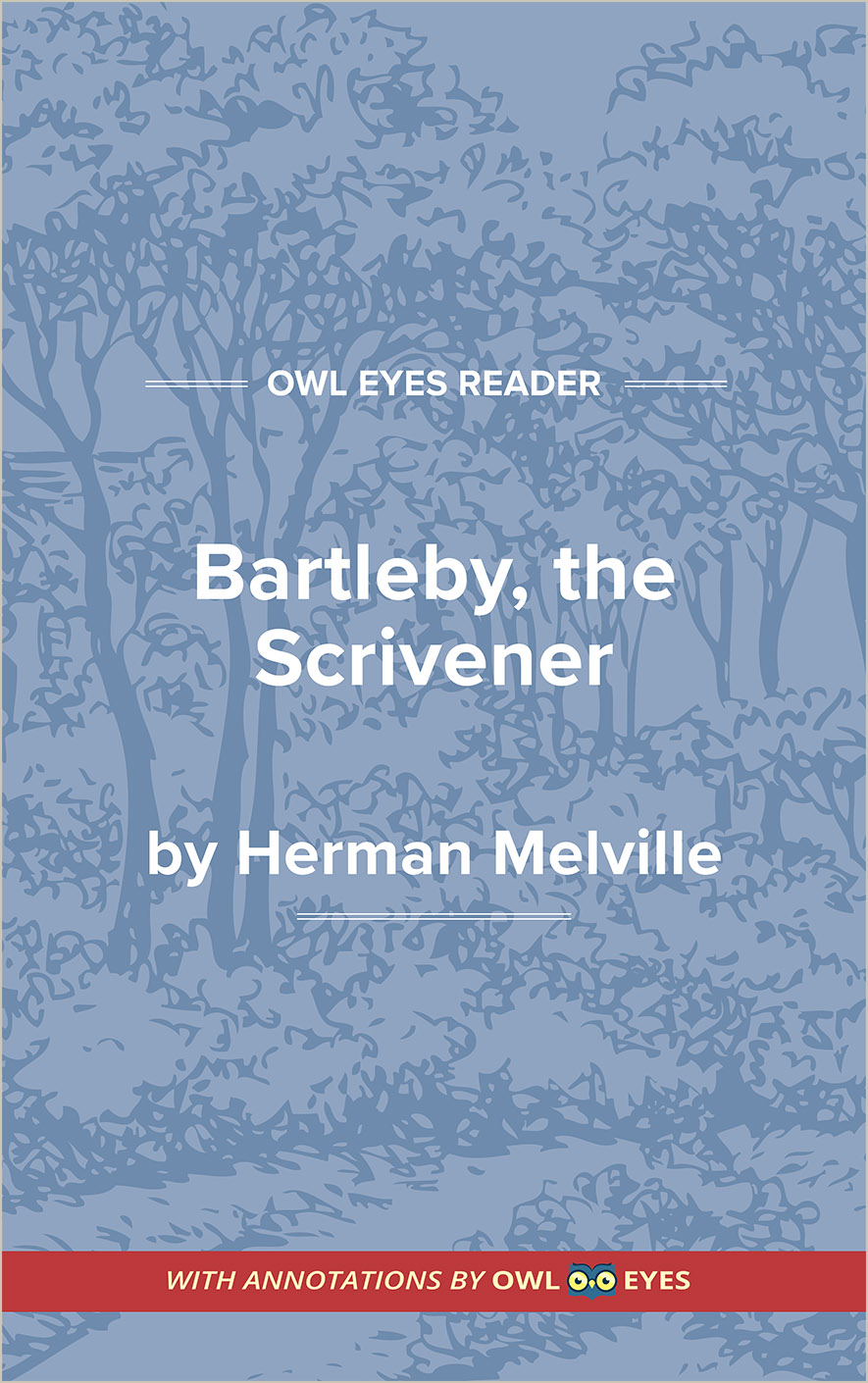Analysis Pages
Themes in Bartleby, the Scrivener: A Story of Wall Street
Passive Resistance: Bartleby is not a conventionally heroic character. However, his choice not to comply with the rules of the workplace could be viewed as a rebellion against Wall Street materialism. In this way, Bartleby comes to represent the power of passive resistance against capitalism. In this reading, Bartleby’s resistance to his “superiors” is a heroic rebellion against society’s current structure. His lack of desire for food may be the most pertinent example of this rebellion—Bartleby completely rejects his role as consumer, even when this consuming is necessary for his own life.
Mental Health: Alternatively, some critics have read Bartleby’s character as an early literary recognition of depression. While he initially works hard, Bartleby falls into more depressive states over time. His isolation at work compounds into increasingly anti-social behavior, which the lawyer fails to notice. The walls and communication breakdown between employer and employee contribute to this. Readers also learn that Bartleby worked in a dead letter office, a place where undeliverable mail is destroyed, which likely contributed to Bartleby’s depression.
Isolation and Imprisonment: Bartleby’s tale presents issues with social isolation and imprisonment that are brought on by breakdowns in communication, which result in a lack of understanding on the part of the lawyer and a lack of escape for the trapped Bartleby.
Compassion: Melville’s narrative is largely an attack on commonplace conceptions of morality. The lawyer uses Bartleby to feel good about his own morality, seeing his “tolerance” of Bartleby’s eccentricities as a sign of his own charitable nature. Melville exposes how people in modern society tend to only care about themselves, especially in the capitalist world of Wall Street. This is shown most explicitly when the narrator states: “Here I can cheaply purchase a delicious self-approval. To befriend Bartleby; to humor him in his strange willfulness, will cost me little or nothing, while I lay u
Themes Examples in Bartleby, the Scrivener: A Story of Wall Street:
Bartleby, the Scrivener
🔒"As if long famishing for something to copy, he seemed to gorge himself on my documents. There was no pause for digestion...." See in text (Bartleby, the Scrivener)
"It was the circumstance of being alone in a solitary office, up stairs, of a building entirely unhallowed by humanizing domestic associations..." See in text (Bartleby, the Scrivener)
"Yes, Bartleby, stay there behind your screen, thought I; I shall persecute you no more..." See in text (Bartleby, the Scrivener)
"“At present I would prefer not to be a little reasonable,” was his mildly cadaverous reply...." See in text (Bartleby, the Scrivener)
"Ah, happiness courts the light, so we deem the world is gay; but misery hides aloof, so we deem that misery there is none. ..." See in text (Bartleby, the Scrivener)

